Covid-19 caused the cancellation of the USS Liberty’s 53rd reunion of survivors of The Six Day War.
The following is published in honor of 2020’s USS Liberty Remembrance Day.
By Eileen Fleming
This retired nurse has lived in Florida for decades but New York is my homeland. I began paying attention to Covid19 in January.
It seems China may have covered up the spread of the novel coronavirus for about six days.
However, Mr. Trump wasted six weeks tweeting nonsense, ignoring the science, blathering magical thinking, and pushing drugs before any medical benefit was proven.
This nation could have used those six weeks to prepare for the inevitable invasion, which had already reached our shores BEFORE ending travel from China, because the virus had already spread to Europe, New York, California, and all points in between.
Many of the 100,000 Americans who so far have died from Covid-19 did not have to, and no one knows how many more will perish before this pandemic fades; nor what will follow it!
Millions have lost their livelihoods and children are missing more than we can fathom.
Americans suffering with anxiety and depression are on the rise just as “murder hornets” and locusts begin to terrorize.
I’ve been down about America, but not like this before and knowing a friend who always says the rights things, I phoned him on Memorial Day.
My friend has endured unimaginable pain, which has certainly gotten him down at times, but because of his forgiving heart, open mind, innate sensitivity and altruism he perseveres and inspires everyone who knows him.
His name is Donald Pageler and after he patiently listened to my fretting, distressing, and anxiety over such things as people without masks congregating in public places, Don directed me to a video at http://www.worriersanonymous.org, which is a sweet website created by a “chief worrier” who made me grateful for his sharing of heart, soul, and humor online without advertisements.
Donald Pageler is also the USS Liberty survivor who co-authored the screenplay USS LIBERTY LOVE STORY, which is a FREE download accessible at the links below the following excerpt from a USS LIBERTY LOVE STORY.
I publish it here now because one thing I do worry about is the simple fact that most Americans do not know even know WHY they need to know what happened on 8 June 1967; and what happened was President Lyndon Johnson FAILED to SUPPORT USA TROOPS involved in The Six Day War, and every president since has colluded in the cover-up that killed 34 Americans, physically wounded 174 and traumatized the entire crew.
In “The Brothers Karamazov”, Fyodor Dostoyevsky writes: “Love in action is a harsh and dreadful thing compared with love in dreams… active love is labor and fortitude.”
Donald Pageler is a USS Liberty survivor who exemplifies love in action with courage in pain that has met great loss with resilience that comes from moral fibers that built a backbone filled with true grit. If Don had been at his duty station on June 8 1967 he would be dead, but instead fills his days with speaking engagements many of which can be viewed at YouTube.
Don also visits veterans in hospitals, nursing homes, and the gravesides of his shipmates. In September 2018 Don established a USS Liberty scholarship fund in his and his late wife Eva’s name at the University of Kansas as another way to keep the story of Liberty alive. The Donald and Eva Pageler scholarship provides funding for veterans at the University of Kansas with a preference for those enrolled in the School of Business.
Don’s page at The National PURPLE HEART of HONOR website states:
Mr. Pageler was hardly out of Naval boot camp when his ship, the USS Liberty was attacked by the Israeli Defense Forces during The Six Day War. The attack lasted almost two hours. Over the course of the attack Mirage Fighter planes put more than 800 rocket and cannon holes and more than 3,000 bullet hits. After the Mirage Fighters left, Mystere Fighter Bombers attacked the liberty with Napalm. Torpedo boats came out and shot five torpedoes at the Liberty. One torpedo hit the Liberty in the intelligence spaces and blasted a 40- foot hole in the side of the ship… The USS Liberty was a converted World War II cargo ship that had been transformed into America’s premier spy-ship by 1967.
DONALD PAGELER VOICE OVER HISTORICAL IMAGES:
My grandparents were from Germany and the LIBERTY issue has made me even more sensitive to anti-Semitism. It’s not the Jewish people or Judaism that is the problem, it’s the governments of America and Israel that wanted to sweep this incident under the rug and cover it up that has caused the survivors and families much suffering. What June 8, 1967 did to me was a nightmare that I repressed for years and have suffered greatly from. As a kid I always kept things in. I am quiet and reserved. I always internalized and thought stuff was my fault, even though logically I knew that wasn’t rational.
Emotionally I felt responsible somehow about what happened on June 8, 1967 in the Mediterranean and since nobody was taking responsibility for what happened to the LIBERTY; not our government, not Israel, and the media failed at their mandate to investigate. I felt responsible but I also suppressed it, because when I was debriefed after the attack I was told to never talk about it.
I am but one member of a band of American brothers who survived Israel’s June 8 1967 attack on the USS Liberty, American’s then premier surveillance ship. I found a productive way through my anger at the LBJ Administration for instituting the cover-up and my activism has helped me cope with the silence of every presidential Administration and Congress since who have all failed to support the troops who survived Israel’s Six Day War by ignoring our pleas for a transparent and thorough investigation of that day in infamy when America’s Middle East policies aligned more closely with Israel.
In 1967 Captain Ward Boston was given one week to conduct an investigation of Israel’s attack on the Liberty. Before he died Captain Boston signed an affidavit stating that the attack on the USS Liberty was deliberate… In 1979 shipmate James M. Ennes broke the taboo about speaking of our experiences and the government cover- up in ASSAULT ON THE LIBERTY.
I read it but I didn’t start talking about my experiences until 1987, when I began posttraumatic stress therapy and then poured out my guts in an exhaustive oral history interview for Claremont College’s Graduate School Oral History Program. Still reeling from uncorking those memories I wandered into the Data Bank that fateful day. Nobody at work knew about my life on the outside, all they knew was I worked on a series of communication satellite programs. Eva worked in the Data Bank and was responsible for storing and retrieving data for the satellites’ engineers. Our only conversations over the previous five years had concerned satellites, but when Eva’s dark eyes magnetized mine as she asked, “How are you doing?” I snapped and without a thought blurted out, “not very good.”
I went onto surprise myself by telling her about my recent divorce and the oral history with Claremont Graduate School. Eva wanted to read it. After she did she invited join her friends for dinner on Saturday. I had not socialized years and only a few months prior had begun Post Traumatic Stress Therapy at the Vet Center not far from Disney Land. I couldn’t commit and Eva didn’t push. She said give her a call by noon on Saturday to let her know: yes or no. At 11:59 am Saturday, I called Eva and said I would go. Then I began to wonder, “What am I doing?” It was the best decision of my life.
My worst may have been to interrupt my studies at the Westminster College to enlist in the Navy as the way to fulfill my dream of going to sea and to escape the draft. I didn’t want to go into the military and I wasn’t ready for college. In High School I was a top athlete but mediocre student. I knew the Army would soon be breathing down my neck because of Vietnam and the draft. I had always wanted to go to sea, so I decided on the Navy. Maybe that created some of my guilt problems because I didn’t have to be what they called a “ground pounder” in Vietnam. So I joined the Navy, went to Boot Camp and onto the Communications Technicians School, in September 1966 to March 1967.
Communications Technicians duty is eighty to ninety percent shore duty. So, anybody that gets a ship is unusually lucky or unlucky depending on whether you want to go to sea. I got my orders about two weeks before the end of CT school.
I called Jane because we had been steadies since high school and asked, “Do you still want to get married?” Jane replied, “Yes, I think so.”
Our honeymoon coincided with the remainder of my shore duty time in Norfolk, Virginia. I paid shipmates to cover my onboard watch so Jane and I could spend as much time together before I departed the U.S.A. on May 2, 1967, onboard the USS LIBERTY, America’s then premier spy ship.
The Liberty was labeled a “Technical Research Ship” and I was labeled “Seaman E3” which stands for Communications Technician, which was changed to Crypto Technician in the late 1970’s. I began my Navy career as everyone does labeled an E1 – Seaman recruit. I was upgraded to E2 – Seaman apprentice, then E3 – Seaman, E4 – 3rd Class Petty Officer, and finally E5 – 2nd Class Petty Officer, before leaving the Navy in March of 1970… My trip into hell began on May 2, 1967, when the United States “Technical Research Ship” the Libertysailed from Norfolk, Virginia on a routine patrol of the African Coast.
From March 16 through May 2 1967, I spent as little time as possible on the ship because I paid guys to take my watch for me because I had just married Jane. Normal tour for that ship was three cruises, which consisted of four months at sea, and two months based at the Norfolk Port. During our two months in Norfolk everyone got plenty of time off as we only stood very basic duties to make sure the ship was secure.
Since I paid people to take my duty so I could spend as much time as I could with Jane, I did not form any tight bonds with my crew- mates before that day in infamy bound us together in a fight for our lives and the ongoing struggle to end President Lyndon Baines Johnson’s cover-up, which every White House and Congress since has colluded in.
I had a top-secret crypto clearance onboard the Liberty and worked in the area on the ship where messages came in and went cut. Communication Technicians were always aware of what was going on even if some of the deck crew was not. When we docked in the southern Atlantic coast of Cote d’Ivoire, in West Africa, we were given four and a half days of liberty- free time to wander around Abidjan.
But a day and a half later the order came to depart immediately for Rota, Spain. By the morning of June 8, the Liberty had navigated into international waters about 15 miles off the Gaza Strip. There were approximately six hours of reconnaissance missions flown by Israeli planes, but I didn’t know anything about that until after the attack. I was stationed a couple levels below the main deck, and stood what the Navy calls an eve-day-mid watch. I start out at four o’clock in the afternoon one-day, and work from four to midnight.
Then I would have off from midnight to eight the following morning, barely enough time to eat, sleep, and get back to work and repeat the cycle until you got a full day off. That was when you did all the other basic Navy work, like chipping paint. I had been working all night the night before June 8. I’d gotten off at eight o’clock in the morning, ate in the mess deck and then straight to bed. Around one o’clock I was awoken for a general quarters drill, which was about an hour before the attack happened. At the time I was not aware that there had been any reconnaissance missions that morning because I’d been asleep all morning after working down below all night. After we had the general quarters drill, many of us who were off duty went up on the fantail to smoke cigarettes.
After I had about three cigarettes about five or ten of us headed back down below. My sleeping compartment, which is where all the communications technicians slept, was far way from the deck hands quarters in the forward part of the ship. Communication Technicians slept in the aft part of the ship and one level below the main deck.
I was about half way down the ladder into the sleeping compartment when I started hearing metal hitting metal. If I had stayed on top to smoke one more cigarette, I would have been shot and likely killed.
My general quarter’s station was on the mess decks, which was just forward of my sleeping compartment and one level below the main deck. The mess deck was rapidly converted into a hospital for around 170 wounded unarmed men on board the Liberty.
My duties during an attack or general quarters drill were to be in charge of a submergible pump. That’s a pump where if a compartment floods, you plug it in and put it down in there and hook a hose up to it, and you pump out the area. Well obviously, during an air attack, you don’t need one of those. Somebody said, “Go topside and help with the wounded.”
I remember going up the ladder, which would have been two or three levels up, because the bridge is a level or two above the main deck. I remember somebody saying,
“Go help with the wounded.”… I remember going up the ladder and as I was just about to the door where you go out onto the bridge, two guys came busting through the door with a guy on a stretcher. They said, “Here, take this guy below”… I remember thinking, “Thank God I don’t have to go out there because I’d probably get shot if I did.”
Afterwards I remember feeling like a coward for not having been where everybody was getting shot up. I do not remember how many runs to the bridge I made with wounded but I do remember Doc Keipfer setting up and performing operations.
I remember being hooked up to a sailor to give my blood during an operation on a mess table. The air attack was pretty much over, and we knew we had gotten messages out because I had been up talking to the radiomen. We knew that they had enough time to send us help, and it wasn’t there. All this was taking place somewhere around the time when the torpedo boats came because I remember hearing some one say, “Prepare for torpedo attack.”
I remember being down on the mess decks and somebody said, “Throw yourself across the wounded.” I did what I was told. As it turns out it was a good thing because when a torpedo hits the side of a ship, it just lifts up the whole side of the ship. If we hadn’t been lying across the guys on the tables that were wounded, they would have just rolled off on the floor. Those with experience telling the rest of us who had no idea what was going on, what to do helped save many lives.
The USS Liberty was a converted World War II transport ship built in three sections that were welded together. One torpedo could have sunk it. After the first torpedo hit us I knew that there had been time enough to send help but none had arrived and we kept hearing, “Prepare for another torpedo attack” over the PA system.
A number of us on the mess decks were talking about how we’re going to get hit with another torpedo or we’re going to sink before it hits. Or if you don’t go down with the ship, you’re going to jump overboard but if you jump overboard, the way these people were attacking we knew they would shoot us in the water.
In Jim Ennes’s book “Assault of the Liberty: The True Story of the Israeli Attack on an American Intelligence Ship” he writes about grown men crying for their mothers during the attack…I don’t remember that, but I do remember guys on their knees with their rosary beads. That’s pretty much up through the torpedo attack. After that, somebody said, “Get the submergible pump and go up front to the Communication Technician quarters.” I did.
My workstation was two levels below the main deck. The mess deck was one level below the main deck. You go forward from the mess decks, through the engine compartment and end up at a hatch. You go down one level and you go into the quarters where I worked. That’s where the torpedo hit. That was where over a dozen men tried to scramble out before it became their coffin. I got up there just about the time some officer was trying to make the decision whether or not to close the hatch because it was flooding so badly. I remember thinking, “My God, I’m glad I’m not him and have to make that decision to close that hatch.”
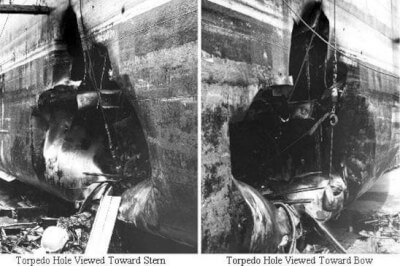
Twenty-five men died in my workspace when the torpedo hit.
An Israeli helicopter arrived with troops and four or five of us ran to the gun locker and tried to break in without success. The gunner’s mate, who carried the keys, was killed on the gun mounts during the air attack and we wanted the Thompson Machine Guns inside imagining we could shoot down the helicopter!
I do not remember when I found out it was the Israelis who attacked us. I remember after the attack was over and Israeli torpedo boats came along side wanting to know if we needed help with our wounded. I remember some helicopters came and dropped a crate of oranges on the fantail with a note tacked onto it offering help with the wounded. Legend has it that Captain McGonagale told them to “fuck off.”
I do not remember much of the rest of that night. I still can only piece together the following five days as we made our way to Malta for repairs.
I remember standing two duties. One was in the compartments surrounding the area that was flooded where the torpedo hit. In the Navy walls are called bulkheads and internal bulkheads are not built to withstand the kind of pressure that they were under from the movement of the ship. One function of a repair party is to shore up the bulkheads with timber or anything sturdy to lean against the bulkhead or another structure to help support the walls from caving in.
I remember we had battery lights for illumination but they were not very bright…I remember the smell of fuel oil…I remember being very scared. One of my jobs was to stand in the battery lit compartment for four hours to watch the bulkheads and make sure that things weren’t going to cave in. That was scary but not the scariest.
The other duty I stood was down at the very bottom of the ship where the shaft runs from the engine room back to what the propeller in the back, which is called a screw. There’s this big long shaft that runs from the engine room back to the screw. One of my jobs was to stay down there for four hours with a headset on and make sure that the ship wasn’t starting to break apart. If it was I was supposed to call the guy at the bridge and say, “Guess what, the ship’s starting to break up” knowing I would not be able to escape… I remember somebody dropping some metal up above one day while I was lying in my rack, which is what you call a bed in the Navy.
I remember being on the floor almost before the sound hit. They called it “shell shock” in World War II. Post-traumatic stress syndrome was not labeled as a diagnosis until 1980.
I remember when Admiral Kidd came on board. It seems to me he brought enough brandy to give everybody there a small bottle of brandy; not that the Navy would necessarily condone that. Admiral Kidd was in charge of the Court of Inquiry that began when the ship reached Malta. I did not know any details but everyone was aware of all the brass from Washington running all over the place. I was not asked to testify.
I remember looking down at the torpedo hole taking pictures. There were a few enlisted men and three high-ranking officers from D.C. who were there for the Court of Inquiry.
I remember one of the officers say to their peers, “Gee, I don’t know what everybody’s making such a big deal about that for.
That hole doesn’t look that big to me.” That hole measured forty feet. A third classman, which would have been one rank above me, was standing next to me. He turned around to the three officers, gave them the finger and said, “Fuck you, sir!”
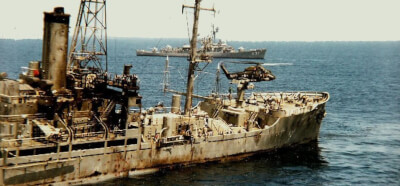
Everything was classified in the compartment where I worked on the Liberty and only a few people were allowed in. On our way to Malta some Navy scuba divers tried to put nets over the torpedo hole so we wouldn’t lose anymore classified documents in Mediterranean waters. That torpedo hit exactly where I worked.
When we got into dry dock the Navy could have flown in some other Communication Technicians with top-secret clearance; but they didn’t.
All the survivors who weren’t severely physically wounded remained on the ship to be further traumatized by cleaning up the remains of their shipmates and debris.
In Jim Ennes’s book he writes about an account told to him about somebody going down to my work station and after coming across a piece of a body they ran up the ladder screaming, “I’m not going back down there.” I just thought we had to do our job and you gotta do what you gotta do so I endured nearly three days down there cleaning up, but I only remember one incident.
I picked up a piece of equipment and below it was Phil Tiedtke’s muscular arm. Phil spent his free time in the weight room so despite his detached arm soaking in salt water; the muscle structure was still recognizable. He was a communications technician, just as I was. I remember sun bathing on the deck with him a couple of days before we got to Abidjan, Africa. It took us about thirty days to get from Norfolk down to Abidjan.
I remember picking up his detached water logged arm thinking, “You gotta run around and find the rest of the pieces of his body and make sure they all get in the same body bag so they all get buried together.”… Then it was like this other guy inside me saying, “You stupid son of a bitch, he’s all blown apart. It doesn’t make any difference. Just throw it in a body bag and get on with it.” Callous maybe but more rational definitely.
I learned Phil had been buried in a cemetery just south of Modesto CA and in 2011, Eva and I paid our respects at his gravesite. After my three days of cleanup duty, I remember going on liberty.
I remember a gang of us sitting in a little sidewalk cafe. I remember this girl who must have been six or seven months pregnant come over and sit down on my lap. She groped my crotch and asked if I would pay to go to bed with her. I politely declined and she made her way to another table and I moved onto another bar with a crewmate but ended up all by myself drinking cognacs on the rocks out of large glass. Two or three German guys and a few Royal Air Force officers were also in that bar and it was a good thing I was too drunk and still in shock, so I didn’t join in the fight with the RAF officer who said, “Ah, you guys deserved to get shot up, you shouldn’t have been over there anyway.”
I remember being in a taxicab. That’s the last thing I remember about that day. I have no idea how I got back to the ship. I have no idea what time I got back to the ship. The next thing I remember was being sent to a British military installation and flown out in a small aircraft. I had no way of knowing about the efforts of the United States and Israel covering up the attack by claiming it was an accident! Everybody on the USS Liberty knew Israel’s attack was not an accident. Israel nearly shot all of us into the sea and if they had succeeded to sink the Liberty, they could say, “The Arabs must’ve done it.”
Back to what being in transit is for enlisted guys maybe like being in hell. The commander where you are doesn’t give a damn about you because you’re just there passing through. Your previous duty station is no longer responsible for you. And where you’re going nobody even knows, because the Bureau of Personnel hasn’t gotten around to issuing your orders. If you are an officer or somebody with many years in the service you receive priority service, but if you’re just an enlisted guy you could be in limbo for a long time. Fortunately the officers on the Liberty made out the orders sending us to Rota and placing us all under a chief or an officer’s set of orders. When we were in transit to Rota, somebody tried to get hard nosed with us ordering us to swab floors and stuff like that. But then some guy came in who knew what we’d been through and he tells everyone to leave us alone.
From Rota we were bused to Madrid, loaded on a TWA flight to Kennedy and then onto Washington, D.C. before returning to Norfolk. We were there a day or two, enough time for them to insure we had our orders and to debrief us because of the classified material, such as telling us that we weren’t supposed to go around talking about it, especially to the news media. It took another three planes to get home, which totaled seven plane trips since the attack before arriving home. I remember people look at me as if I was going to fall apart or go Looney-tunes and I held myself together by not talking about it.
I just kept thinking, “I’ve got to keep carrying on, just got to keep carrying on.”
I remember the time I showed my parents and Jane my Purple Heart, then immediately put it away. I really didn’t want to show it to them after I got it.
I didn’t want to show it to anybody, but I felt everybody would think I was nuts if I didn’t. So I tried to look normal and talk as little as possible I remember the day I received the Purple Heart feeling like I didn’t deserve it because I got hurt worse playing football. Once I played with a broken ankle then spent three days in a hospital because of all the swelling. In my senior year our team was tied for first place and I was carrying the ball until I was knocked down. The bodies started piling up over me even after the whistle blew. Afterwards my coach noticed I was not using my arm and when he called me in we discovered my collarbone sticking straight up.
I returned to the University of Kansas in March 1970. In April students burned down the student union hall protesting Vietnam. I graduated in 1972 but didn’t attend the graduation ceremony because I had already taken a job at the Caterpillar Corporate Office in Illinois I remember feeling I would be happier closer to the ocean and by 1977, I was working at Hughes Helicopters in Culver City California.
I worked in the building where the Spruce Goose was built and worked with two of Howard’s original flight crew. In 1982 I started to build communication satellites at Hughes Aircraft Company Space and Communications Group in El-Segundo. If the Liberty came up in conversation I didn’t talk about it and I put out signals I didn’t want to talk about it. In April 1987 I was shooting pool with Dick Crowder, a mutual friend of Jane’s and told him about the Liberty incident. Dick said, “Well, the few times it ever came up, you just kind of acted like you really didn’t want to talk about it, so I didn’t push it.” At the time I was riding a mountain bike to help release stress and clear my mind as my marriage to Jane was ending.
During Christmas of 1987 my dad was in critical condition at the hospital, my sister was having marital problems, and my mother was no longer capable of dealing with any of it. That left it up to me I remember a doctor in a hospital hallway telling me, “Listen, I don’t know how your mother will take it, but your dad’s heart is so weak, there’s really nothing that can be done. He can die next week, or he might live another three or four years.”
I still hadn’t dealt with the Liberty trauma and the guilt I felt for being a survivor, now I had the responsibility to inform the family that the old man is going to croak.
The next thing that happened was the Challenger tragedy. Greg Jarvis, one of the astronauts on the Challenger, was a mission specialist from Hughes Aircraft, and best friends with the guy I was working for at the time. In fact, the guy I worked for was down at the Cape during the launch.
About a month afterward, I had a dream. In this dream, I was in a space ship. In the dream the British were building a different kind of space ship. Instead of taking off like our shuttle, it took off horizontally, like an airplane. I remember being in it, flying along when instruments malfunctioned and we landed in the ocean.
I remember feeling in that dream how I felt when I didn’t want to go on deck and get the wounded because I was terrified I would be killed. I remember in the dream we landed on the ocean near some shore but I don’t remember more than feeling afraid. When I got up the next day, I told Jane about the dream and she asked, “What are you afraid of?”
I said, “I don’t know” because at the time I still didn’t have any idea that I was running around with all the fear instilled inside of me because of my ocean journey on the Liberty.
Later that week I was driving home from work down the San Diego freeway and began crying so hard I had to pull over. I do not know if I cried for five minutes or a half-hour before I finally realized what I was crying about; “Oh My God, I’m thinking about the ship!”
That’s how it happened, just like everything decided it was going to come out and did. That was in October, so I’d been crying for six months I’d cry all the way to work. At lunch hour, if I didn’t have to do something, I’d get in the car and drive down to El Segundo Beach and I’d cry for an hour at the beach. And then, I’d cry all the way home. Sometimes it would get so bad that I’d have to get up from my desk and go outside and walk around.
One night I watched a “Simon and Simon” show. Rick was typical of many Marines I’ve known who are just angry and look for a fight. Rick ends up in group therapy with a black guy who said something like, “Well, when I got back from Vietnam this lady accosted me at the airport and told me we were a bunch of rummies who did a lousy job and lost the war” and then he trails off about how he told her off. In the show Rick is sitting in the back of the group and yells out, “Bullshit. You didn’t say that to her.” Then the black guy broke down and admits, “No, I didn’t say that to her” and he just crumbles. At that point in the show, I fell apart too. I sat there crying hard and not comprehending what was going on with me. I credit “Simon and Simon” for leading me to group therapy for post- traumatic stress.
I remember after the attack feeling I had no right to feel sorry for myself because my trauma erupted in a few hours and went on for a week. During one group session a Marine said, “I don’t think I ever really knew fear or was ever scared.” I said, “Well, I have. First while I was feeling certain the Liberty was going to sink. Again when I was picking up pieces of shipmates bodies afterwards.”
When I shut off my fear I closed down a big part of me. I remember telling the group about not being prepared for getting the hell kicked out of me. I talked about guys who went to Vietnam being prepared for going into war zones and battles. The therapist laughed and said, “It doesn’t make any difference. When I went to Vietnam I thought those guys weren’t going to shoot at me because I’m a fucking nice guy. They’re going to be shooting at all the rest of those assholes, but not at me.”
What I found out through group is that everybody goes through crap and experiences fear. Before therapy I didn’t think I had the right to feel afraid, but that changed in 1987 because I contacted the Veterans Administration who directed me to the Outreach Vet Centers in a shopping mall near Disney Land. So I go and tell a total stranger my whole life history and that my wife had just moved out. I’m sitting there crying in front of her, falling apart like a total basket case and thinking, “What the hell is going on with my life?”
The following day while I am at work, I learn my dad had a car accident was in bad shape but I just couldn’t feel bad about it. The very first group session I attended next the therapist asked, “What’s bothering you?” I said, “I felt like a coward. I felt guilty.”
He said, “Well, why did you feel guilty?” I said, “Because I was a coward. I felt guilty because I was afraid to go out on the bridge because I might get shot.”
He said, “Well, what did you do when you felt like a coward?”
I said, “I just did whatever somebody told me to do, I was too ‘green’ to know what to do, so I just did what I was told.”
He said, “Hell, it’s a good thing YOU weren’t in Vietnam, you’d have probably been killed. You didn’t have enough sense to let fear take hold.”
I hadn’t thought about it like that and he continued on, “The first time I got in a fire fight, I shit in my pants and had to go hide behind the nearest bush and clean them up so nobody would know I’d done it. It probably saved my life.”
I will always remember that leader of that group saying, “You get stronger by surrounding yourself with other people who are getting stronger.”
I remember just before I started going to the Vet Center, that I felt like a freak compared to everybody else and like I didn’t belong.
One of the things that the Vet Center therapy did was reunite me to my sense of connection with other people by connecting me first with those who had been through similar experiences.
My feeling was that after World War II, everybody that wasn’t in the war was involved in the war back here. And when everybody came home, everybody felt like they had been involved, so that may have helped some guys who had been through traumatic times be able to open up about it.

My neighbor had parked his trailer very close to my garage and when Eva drove out of the garage she caught the rocker panel underneath the front door on the passenger side. It ripped the rocker panel, the back door, and gouged a nick in the mag-alloy wheel. The next night I gave her an engagement ring and asked her to marry me. We married after dating for six years on August 28, 1993.
The first 10 years of our marriage were the happiest and most enjoyable years of my life but all 27 years with Eva were the best of times.
I remember when Eva and I organized the 2002 USS Liberty reunion in Pensacola, Florida. Most everyone left on Sunday but we stayed an extra day.
I remember dinner that Sunday night with a few other shipmates. Eva excused herself to go outside and shortly thereafter the waiter told me to go outside. The paramedics were there and Eva was lying on the sidewalk. She told me later she thought, “I can die now because Don is here.”
Eva had fallen and split her lip all the way to the bottom of her chin! She jammed a tooth so far up into her head that no one could find it on an x-ray but three weeks later it reemerged. Feelings of helplessness overwhelmed me just like after the attack on Liberty. In the middle of the night a plastic surgeon sowed up Eva’s lip and I catnapped on a gurney in the hall way.
The next day we drove my mother back to Kansas and then flew home to California. In January 2003, Eva’s stepfather Ray decided to go to a nursing home. Ray and I had become close and he was a combat veteran who served on Iowa Jima, Tinian, and Saipan in the Pacific during WWII. Ray like me was from Kansas and he married Juanita-Eva’s mother- when she was 50 years old.
I married Eva when she was 50 years old. Juanita had two sons and two daughters and so did Eva. Two weeks after Ray moved himself into the home we called him but the nurse said he would not talk to us. She said he was not eating or taking his medications. That’s when we realized he went there to die. We then got the house ready for sale and moved Eva’s mother Juanita to where we lived. I remember the 2003 Veterans Day parade in Palm Springs and Eva being in the emergency room a few days later being prepped for a heart stent.
I remember once when we were walking and Eva fell to the ground so unexpectedly I wasn’t able to stop her. I remember another collapse and watching the paramedics hit Eva with the paddles and her body bounced up off the floor. Feelings of helplessness engulfed me just like on the Liberty.
In September of 2004 my mother phoned and said, “I thought you should know, I blacked out and drove into a parked car.” She had been traveling at seven miles an hour and was not hurt, but in October my wife and I traveled to my mothers home in Kansas. At 89 years old she was still operating her own real estate agency, but when I went to her office I found bills she owed stuffed in magazines. I paid them and after a month returned home to California. Eva and I returned to Kansas for Christmas and I made the decision to shut down the real estate agency and auction off the equipment while Eva returned to our home in California. I went to work on the Kansas house I had moved into in 1952 when I was six years old. Being without Eva while sorting through old memories, I began to drink more than I had in years. In early June I loaded my mother in the car and headed for California and moved her into an independent living facility in Solana Beach, 85 miles from our home.
In April of 2007 a blood clot traveled into her lung and after a week in the hospital she was discharged to a nursing home. I drove 170 miles round trip six days a week for a month until I moved her closer to were we lived.
In August of 2007 a doctor told me he felt my mother had 6 to 18 months to live. In January 2009 we moved Eva’s mother and mine to a memory care unit six miles from our home and visited them four times a week.
On 22 Mach 2011, my closest friend from the USS Liberty, John Hrankowski died and then my mother died three weeks later. In December the mother of my childhood friend Bruce Walker who is still MIA from Vietnam died. His airplane had been shot down by SAM missile in 1972.
Around Christmas 2010, Eva came down with shingles and had been suffering with asthma. By April, Eva had seen our primary doctor three times, her pulmonary doctor twice, and her cardiologist once. None expressed concern for her life. On May 29th, the residence where our mothers lived called to say Eva’s mother had quit eating and had an appointment with the doctor at 2 PM that day.
Eva and I went to lunch then picked up her mother for her doctor visit at Kaiser Medical Center. I put Juanita in her wheelchair and took her to the third floor where her doctors was. Eva went to the second floor to check her in and immediately collapsed. I returned to Eva just in time to see the paramedics hit her with the paddles and watch her body bounce off the floor.
The Kaiser people told me they took her to the closest emergency room and I would not be able to see her immediately. I returned Juanita to her residence and then went to the Garden Grove hospital. The emergency room doctor told me Eva’s heart had stopped twice and the paramedics shocked her to get it started. He said her heart also stopped in the emergency room and he had given her a shot to get it stated. By the time I got to be with her around 4 PM, they were giving her medication to raise her blood pressure.
Around 5 PM, they took her for a cat scan and then to ICU and I went to the car and called Gloria, Eva’s youngest daughter that lived about thirty miles away. I was in the ICU with Eva when Gloria arrived to stay for the night. Michael, Eva’s oldest son was driving to arrive by midnight. I needed to go home and clear the guest room for Michael because Eva enjoyed shopping and the bed was piled high with bags and boxes. I arrived home by 11 and just after midnight Gloria called and said Eva had died. For three months I wandered around the house in shock. Then I started crying all the time. When I realized I needed to get out of the house, I went to bereavement groups and scheduled a psychiatric exam at the VA hospital.
Eva had become my whole life and loosing her has been more difficult for me than the trauma from the Liberty, but love grows and so have I.
Living with survivor’s guilt is never-ending processes through which I learned that anger keeps one spinning in a never-ending circle but with an exit that I call grace.
I understand grace as having acceptance of what cannot be changed by acting in ways that help heal myself as I reach out to others by way of visiting the dying, or educating and inspiring listeners at speaking engagements to do something with the information I share. In short, the Serenity Prayer has been a big help to me.
I have worked on not blaming others but appreciating others especially Eva, Capt. McGonagle, my shipmates, friends, and all who seek peace by working for justice.
Less than two months before the 52nd anniversary of the attack on Liberty, I received a phone call from Larry Slavens a shipmate who had been severely wounded during the attack. Larry has not been involved in the USS Liberty Veterans Association and we had not spoken in over five decades but we talked on the phone for nearly two hours. Larry lives not far from my hometown and in April 2019, Kansas’s Lawrence Journal World published an interview with Larry Slavens about his memories of that day in infamy.
I feel better about me and whenever I learn about others who are telling the truth out loud as a way to peace within. -End Don
Perhaps some of these veterans post traumatic stress wounds would better heal when we the people acknowledge every June 8 as USS Liberty Remembrance Day, and it already is in the hearts and minds of the American survivors of the Six Day War, their families, friends, and supporters.
Read the entire screenplay at:
OR
To commemorate the 50th reunion of the USS Liberty Veterans, Eileen Fleming produced “We Americans and the USS Liberty”
READ a USS Liberty Love Story by Barbara Lupton HERE

Read more by Eileen Fleming HERE and HERE


- Vanunu still has more nuclear secrets to spill, Israeli court declares - December 29, 2021
- 9/11 and a 20th Reflection of That Day - September 5, 2021
- Mordechai Vanunu: Final Annual Update and this Writers Next Steps - June 19, 2021













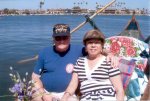
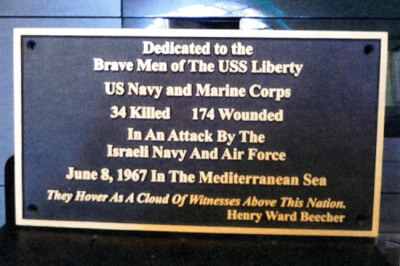

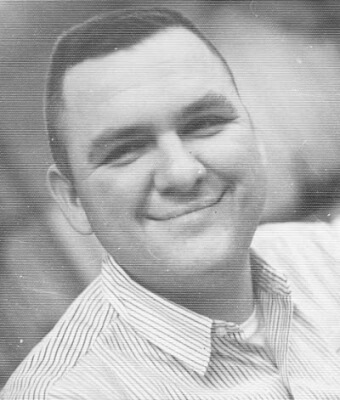



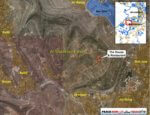



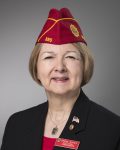
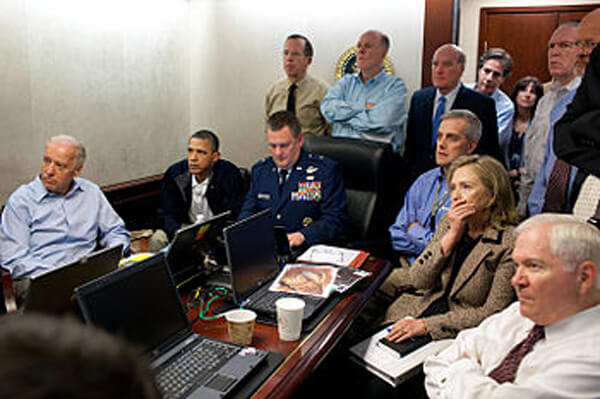

Comment on “A Covid-19 USS Liberty Remembrance Day”